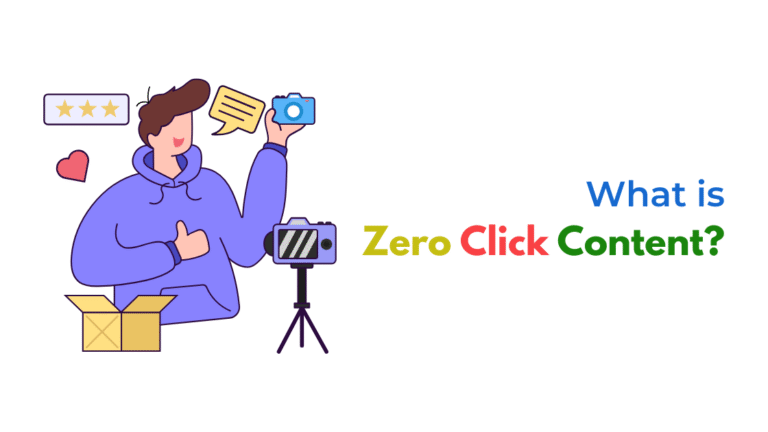Unlike traditional advertising methods that require significant financial investments, social media offers cost-effective opportunities for businesses to reach their target audience.
Do you know how much social media marketing costs for small businesses?
Are you a small business owner looking to make a big impact on social media?
If so, you’re in the right place! Social media marketing has become an essential tool for businesses of all sizes, but it can be especially valuable for small businesses. Not only does it provide a cost-effective way to reach your target audience, but it also allows you to build brand awareness, engage with customers, and drive sales.
The Importance of Social Media Marketing for Small Businesses
Social media marketing has become a game-changer for small businesses. In today’s digital landscape, having a strong presence on social media platforms is no longer just an option – it’s a necessity. Why? Well, let me tell you.
Social media allows small businesses to level the playing field. Unlike traditional advertising methods that require significant financial investments, social media offers cost-effective opportunities for businesses to reach their target audience.
With strategic planning and engaging content, even the smallest of businesses can generate buzz and attract customers.
This helps foster trust among potential customers who are more likely to choose brands they recognize and respect.
5 Factors That Influence Social Media Marketing Costs
When it comes to social media marketing for small businesses, there are several factors that can influence the cost.
1. Business Size and Scope: Larger businesses targeting a broader audience may require higher resources and, consequently, face increased costs. Smaller businesses with niche markets can often achieve their goals with smaller budgets.
2. Campaign Complexity: The complexity of your social media campaigns, such as running multiple ad campaigns across various platforms with specific demographics, can require more time and effort from your marketing team, leading to higher expenses.
3. Industry Competition: Operating in a highly competitive market may necessitate heavier investments to stand out on social media, considering the efforts of numerous businesses vying for attention.
4. Content Type: The type of content being created impacts costs. Video production or graphic design work tends to be costlier compared to text-based posts or simple images. The frequency of posting, whether daily or weekly, also affects expenses.
5. External Variables: Seasonality and current events can influence pricing. For instance, during vacation seasons with increased consumer activity, advertising rates may rise due to higher demand.
It’s important to understand these factors so you can budget accordingly and make informed decisions about your marketing strategy.
Different Pricing Models for Social Media Marketing Services
When it comes to the cost of social media marketing services, there are various pricing models that small businesses can choose from.
Let’s take a look at some popular pricing models:
1. Hourly Rate: In this model, agencies or freelancers charge an hourly rate for their social media marketing services. This can be a good option if you have specific tasks or projects that require dedicated attention.
2. Monthly Retainer: With this model, you pay a fixed monthly fee to your service provider in exchange for a set number of hours or deliverables each month. This allows for consistent support and ongoing management of your social media accounts.
3. Project-Based: If you have a specific project or campaign in mind, such as launching a new product or running a contest, you can opt for the project-based pricing model. Here, you’ll negotiate the scope of work and agree on a one-time fee for the entire project.
4. Performance-Based: Some agencies offer performance-based pricing where they receive compensation based on achieving certain goals or metrics, such as increasing website traffic or generating leads through social media campaigns.
5. Percentage of Ad Spend: For businesses that heavily rely on paid advertising on platforms like Facebook and Instagram, some agencies may charge based on a percentage of your total ad spend.
It’s important to consider which pricing model aligns best with your business goals and budget when selecting social media marketing services.
Average Social Media Marketing Costs for Small Businesses by Platform (Facebook, Instagram, Twitter)
When it comes to social media marketing, understanding the average costs for each platform is crucial for small businesses.
Let’s take a closer look at the pricing breakdown for Facebook, Instagram, and Twitter.
Facebook is an ever-popular platform with a wide reach. On average, small businesses can expect to pay around $1-$2 per click or engagement on their ads.
However, keep in mind that this cost can vary depending on factors like your target audience and ad objectives.
Instagram is known for its visual appeal and highly engaged user base. The average cost per click or engagement on Instagram ads ranges from $0.50-$1.00.
This platform offers great opportunities for showcasing products or services through stunning visuals.
Twitter is a platform that thrives on real-time conversations and quick updates. The average cost per click or engagement here typically falls between $0.50-$2.00.
Understanding the different pricing tiers across platforms enables you to allocate your budget effectively based on where your target audience spends most of their time online.
7 Tips to Minimize Costs and Maximize Results
When it comes to social media marketing for small businesses, finding ways to minimize costs while still achieving maximum results is crucial.
Here are some tips that can help you make the most out of your budget:
1. Set clear goals: Before diving into any marketing campaign, establish clear objectives for what you want to achieve. This will help guide your strategy and ensure that every dollar spent is working towards those goals.
2. Choose the right platforms: Instead of trying to be present on every social media platform, focus on the ones where your target audience spends their time. By narrowing down your efforts, you can allocate resources more efficiently.
3. Create engaging content: Great content doesn’t have to break the bank! Invest in creating captivating posts that resonate with your audience without requiring a large budget for production or promotion.
4. Utilize user-generated content: Encourage customers to share their experiences with your brand by featuring user-generated content in your social media posts. Not only does this save on content creation costs but also helps build trust among potential customers.
5. Leverage partnerships and collaborations: Collaborating with other businesses or influencers in complementary industries can be a cost-effective way to expand your reach and tap into new audiences.
6. Monitor analytics regularly: Keep a close eye on the performance of your campaigns through analytics tools provided by each social media platform. By analyzing data regularly, you can identify which strategies are delivering the best results and adjust accordingly.
7. Utilize scheduling tools: To save time and streamline processes, consider using scheduling tools like Hootsuite or Buffer to plan and automate posts across multiple platforms in advance.
By implementing these tips, small businesses can effectively manage their social media marketing expenses while maximizing their impact online!
Conclusion
Social media marketing is an essential tool for small businesses looking to expand their online presence and reach their target audience.
While the cost of social media marketing can vary depending on various factors, such as the platform used, pricing models, and services required, it is important for small businesses to create a budget that aligns with their goals and resources.
So go ahead – embrace the world of social media marketing! With careful planning and execution aligned with your business goals – success awaits!





